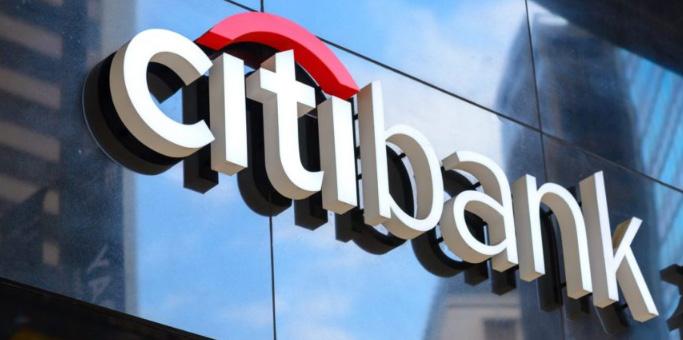
15 minute read
Advertorial Citi Serves Up a Best-of-Both-Worlds Recipe for an Uncertain Investment Universe
Citi Serves Up a Best-of-Both-Worlds Recipe for an Uncertain Investment Universe

Advertisement
At a time of unpredictable returns, Citi offers investors a new solution that has the technical advantages of structured products, while utilising the model portfolio capabilities of the world’s largest asset manager BlackRock.

Finding a recipe for investment success has never been more challenging. In a new age The Multi-Asset Active Allocation Index by Citi (known as MA3), allocated by BlackRock, provides investors with a solution that is adapted to today’s of low interest rates, declining financial environment, according to Citi’s head of returns, US-China trade conflict, Retail Solution Structuring APAC Mederic Gehl. and anincreasingly volatile global geopolitical situation, coupled with The index, rebalanced dynamically according to input unpredictable situations, such as the from BlackRock, benefits on top from optimised design new coronavirus outbreak, it requires with cost efficient unfunded instruments, daily control of vision, ability to break new ground the volatility and leveraging Citi’s execution capabilities. and reactivity to adapt to constantly changing market environments. Navigating a conservative landscape The inspiration for the novel MA3 concept was born Citi has risen to that challenge by from a fast-changing global financial situation which shaking up the traditional investment has seen investors become increasingly conservative, ingredients to offer a unique solution Mederic Gehl with a leaning towards the greater security of multithat combines the advantages of Head of Retail Solution Structuring APAC Citi asset portfolios and an inclination to hold tight to structured products with dynamic existing holdings. multi-asset allocation. This is done through an index, designed and created by Citi, and utilising BlackRock’s model portfolio allocation “Everyone is conscious that the bull market is not going to continue advisory service. and somehow we are reaching a late-cycle environment,” Mederic
explained. “At the same time, there are increasing geopolitical tensions which are making clients more careful about the investments they will make this year.”
“Interest rates remain extremely low which means they cannot stay in cash so money needs to be put at work in other investments. One of the key requirements is for principal protection.”
Those same instincts have driven demand for momentum quantitative strategies in recent years, but investors are beginning to cool on those strategies which have failed to keep pace with global financial developments.
Investors pursuing the momentum approach have more recently found themselves mired in long-term strategies that lack flexibility and responsiveness, said Jennifer Wong, Citi’s Head of Private Bank Distribution for the Asia Pacific region.
MA3’s combination of systematic portfolio optimisation and discretionary views addresses that shortcoming in a new and disruptive way. “The distinctive asset allocation methodology offered by BlackRock embeds a key discretionary aspect from the portfolio manager, who has the flexibility to rebalance the portfolio four to twelve times a year, thereby being responsive to unexpected domestic and geopolitical events. This, in combination with Citi’s structuring expertise, makes it a cutting-edge value proposition for clients,” Mederic said.
A solution built on solid foundations MA3 has been engineered using BlackRock’s Model Portfolio allocation advisory service. The index refers to a globally diversified portfolio with granular building blocks and a conservative risk budget of 3-6%. Investors can get exposure to the index via a Citi note, benefiting from 100% capital back at maturity (subject to creditworthiness of the note issuer) and receiving an annual income. Robert Ronneberger, Asia Lead Strategist for Model Portfolios at BlackRock, explained that the firm was managing close to US$60 billion in such model portfolios at the end of 2019, which benefit from a distinctive allocation methodology, by combining systematic optimisation with discretionary views.
This allocation methodology “combines quantitative management (adaptive set of signals ranging from traditional valuationbased signals to innovative sentiment-based signals) with active management. Model Portfolios are therefore adaptive to a changing environment,” Robert explained.
The index and the arrangement aim to provide a relatively conservative yet progressive and highly innovative way for clients to navigate a complex and evolving investment landscape and provide the multiasset diversification and principle protection that they seek.
“It is a strategy for a new investment environment that is creating appetising prospects for clients”, Jennifer said.
Promising market trends Those prospects have been reflected by a strong momentum for flowstructured products at the start of 2020, according to Jennifer who said Citi had seen volume and revenue double compared with the same period last year.
Five key properties were being sought by customers, she added: Principle protection (full of partial) with clients seeking limited downside; income-paying/yield-searching in a persistently low-rate environment where millions of FMPs are still being sold; multi-asset (asset allocation/diversification needed with late cycle for equities market); third-party index strategic (custom index or systematic); and outperformance structure (either sector play or dispersion among single stocks).
The MA³ index is provided by its administrator Citigroup Global Markets Limited, and allocated by BlackRock Asset Management North Asia Limited. The index is purely notional, and the combination of the index and its wrapper does not amount to a fund; there is no actual portfolio of assets or management of a portfolio of assets. This article does not constitute advice of any type (including investment advice), or an investment recommendation, or a solicitation or offer to sell or to purchase any securities or other financial product. Any decision to make an investment should only be taken with reference to the formal terms and conditions, and offering materials, of the relevant financial product. For more information, please contact Citi Cross Asset Solutions pbsales@citi.com Jennifer Wong jennifer.ws.wong@citi.com Mederic Gehl mederic.gehl@citi.com
John Woods chief investment officer, Asia Pacific, Credit Suisse
CREDIT SUISSE
Despite recession fears with rising geopolitical uncertainties, risk assets performed strongly in 2019 as the year wore on, benefiting those banks which stayed bullish over the course. Representing the ‘Credit Suisse House View’, which is a single view across the integrated bank, Credit Suisse Private Banking’s CIO office showcased its capability as the engine driving investment performance, AUM growth and client retention of the bank, establishing a remarkable risk adjusted return track record over the past few years.
While a number of banks were taking profit from global equities in 2019 as risk sentiment receded, Credit Suisse was one of the few banks that stayed disciplined and kept overweight on risk assets throughout the year, allowing the bank to generate attractive returns amid an uncertain investment environment. As a result, the global tech overweight call generated 39% in returns year-to-date, as of November 2019, and global, US and China equity tactical overweight positions enabled the bank to generate strong positive alpha over the same period. Similarly, the bank’s positive call on Asian high yield also made the bank return 13%.
Worth mentioning, a highlight of Credit Suisse’s CIO house view this year was its innovation on asset allocation scheme by adding the bank’s five secular investment trends — Angry Societies-Multipolar World, Infrastructure-Closing the Gap, Millennials’ Values, Silver Economy, and Technology at the Service of Humans — into its asset allocation strategy which allowed the bank to even better capitalise on the long term investing opportunities.
Currently, the bank allocates 6.5% of a global balanced portfolio into those equities that cover its ‘Supertrends’. Actions always speak louder than words: in the first 10 months of 2019, all five ‘Supertrends’ generated an average 24% in returns for clients, outperforming MSCI AC World by 4%.
“Credit Suisse is delighted to win this prestigious award, which reflects our thought leadership and deep global and local knowledge. In 2019, a substantial investment in infrastructure was made to deliver to clients a powerful and consistent point of reference on key views about the global economy and financial markets.
During 2019, we expanded and upgraded our APAC CIO team by hiring a South Asia CIO plus additional analyst support to better promote messaging and content across the Asia Pacific region. We also further enhanced the delivery of digital research through our technology platforms internally and externally, and this now covers over 70% of our entire client base.”
- John Woods, chief investment officer, Asia Pacific, Credit Suisse
Credit Suisse’s strength in CIO office could not be achieved either without its unparalleled platform for thought leadership and market insights for clients. Apart from its flagship programmes — the BiAnnual Market Outlook Seminar, Asian Investment Conference, and China Investment Conference — the bank’s targeted and customised events for UHNWIs gained a tremendous amount of positive feedback from its clients throughout the year.
Credit Suisse Private Banking is Asian Private Banker’s Best Private Bank – CIO Office for 2019.
Bhaskar Laxminarayan chief investment officer and head investment management Asia, Bank Julius Baer
JULIUS BAER
Dented risk sentiment with rising geopolitical tensions and surging recession fears in 2019 made most private banking clients, who took profits or sat on the sidelines, miss the rally. When ‘wait and see’ became the new normal for the industry, few private banks were able to gather strong asset inflows of the same magnitude as Julius Baer, which stood at the frontier, showcasing its discipline and capability in managing assets in both resilient and volatile markets.
From single line security mandates to fund of funds, the record high new assets that the bank attracted spread across all the major asset classes and strategies — equity, bond, alternatives and multi-asset mandates — in stark contrast with the vast majority of its competitors that largely relied on fixed income to bring in assets.
Following an active judgemental approach to investing, backed by a systematic use of proprietary quantitative models and a risk management process, Julius Baer identified market drivers at every point in time, taking advantage of shorter term opportunities while capitalising on structural trends.
Worth highlighting, one of the recommended strategies which gained tremendous traction in 2019 was the Dynamic Asset Allocation portfolio (an ETF-based multiasset strategy), directly managed and overseen by the bank’s global CIO Yves Bonzon. An unconstrained approach, which allows the maximum cash allocation to go to 100%, enabled the mandate to exhibit its complete flexibility in any market condition, and as a result of an overweight in cash in 4Q2018, the multi-asset mandate recorded only a low single-digit loss when a significant downturn of both equity and fixed income markets made peers take a strong hit in the same period.
Another highlight is the bank’s actively managed certificate-based fixed maturity portfolio (FMP) managed by the Asian Investment Team, which currently also manages the flagship Asia Fixed Income dynamic strategy. When FMPs evolved into a new
“DPM has always been a core offering at Bank Julius Baer. A few years ago there was a concerted effort to further enhance the product map and fine tune the key service level requirements for discretionary solutions in Asia.
We set about building a team which has almost tripled in size in Asia over the past three years. An experienced team, a good and consistent track record, and a solution set that catered to regional needs ensured consistent appeal and success with our clients.
In particular, we are most proud of how we have come to be seen as reliable partners for all those we serve. Be it working in step with each other or providing the necessary backup and sharing of experiences with younger members — the feeling of family is evident everywhere in the team. What better trait to aspire for when all we do is centred at serving family wealth.”
- Bhaskar Laxminarayan, CIO and head investment management Asia, Bank Julius Baer
battleground for banks and asset managers, time to market became a competitive edge for the industry, since speed is of the essence in capturing windows of higher yield opportunities. Jointly launched by the bank’s discretionary team and structured products desk, the FMP mandate managed to lock in an attractive yield in early 2019 and gather almost half a billion USD from its Asian clients in just four weeks.
This all led to the clients having a superior customer experience. They also kept topping up their mandates and, as a result, the bank gathered a historical record high in DPM inflows in 2019, bringing Julius Baer’s discretionary asset penetration to a new level.
In a market populated by fancy new mandates, Julius Baer stuck to core building blocks with an extremely disciplined approach, which gained it a tremendous amount of client trust and positive feedback. As a result, the bank is the winner of Asian Private Banker’s Best Private Bank – Discretionary Portfolio Management for 2019.
Arjan de Boer head of markets, investments & structuring, Asia, Indosuez Wealth Management
INDOSUEZ WEALTH MANAGEMENT
Other than competitors whose sustainable investment strategies rely on providing clients with ESG-themed funds or bond subscription opportunities, Indosuez Wealth Management in 2019 generated a separate environmental, social and governance score for each investment product in order to create an overall awareness of environmental, social, and governance (ESG) factors in every investment decision.
Listing the average, maximum and minimum scores in environmental, social, and governance performance of each product, Indosuez provided an ESG scorecard of the clients’ overall investment portfolio. In doing so, it relied on the input of external consultants and a team of ESG specialists from Amundi, which provided a detailed scoring for each fund available on the Indosuez platform.
Private bankers at Indosuez introduced clients to the concept of sustainable investment by discussing the ESG performance of the most popular single stocks. No other private bank in Asia has the ability of Indosuez to provide a rating for every investment line of a client known to the bank, down to the level of individual stocks and bonds.
In addition, the bank has been analysing risks for investment portfolios and making investment decisions on the basis of ESG ratings since early 2019. The bank would offer suggestions about improving client portfolios’ ESG scores by switching to investments with a similar level of return.
Promotion of sustainable investment extended to the bank’s daily emails to RMs worldwide, providing daily recommendations on specific ESG related structured products to increase awareness. The streamlined process resulted in marked improvements in clients’ overall portfolio ESG rating, suggesting that a shift towards more sustainable investment choices is becoming mainstream.
“As a pioneer in adopting ESG principles in solutions and services for our clients, Indosuez Wealth Management is honoured to be recognised as the Best Private Bank – Sustainable Investments.
Sustainability is deeply rooted in our DNA and incorporating ESG principles in investment solutions becomes even more pressing as global climate change and sustainability have developed into daily living issues on planet Earth. ESG performance and monitoring will remain an integral facet of our key competencies as we continue to draw on the strength of our global and local risk management expertise in the drive towards value-added performance.
We deeply appreciate and thank our clients for their trust and support in our efforts and reaffirm our commitment to providing exceptional service through a diverse range of asset classes and thematic offerings.”
- Arjan de Boer, head of markets, investments & structuring, Asia, Indosuez Wealth Management
Indosuez has made it known that its ambition is to offer a 100% ESG product range, by excluding certain companies from investment recommendations and by including ESG ratings in the investment standards in DPM mandates.
Indosuez’s distinct method of incorporating the ESG theme into its investment strategies and allowing sustainability goals to connect with clients’ daily transactions has earned it Asian Private Banker’s first award for Best Private Bank – Sustainable Investments for 2019.

Rodolphe Larqué head of managed solutions, Credit Suisse Private Banking Asia Pacific
CREDIT SUISSE
With 2019 being such a challenging year for banks despite the market recovery, it turned out to be even more vital for banks to provide the best-in-class solutions and advice and to demonstrate the all-round quality of its investment advisory business.
Credit Suisse’s unique local set-up — with a strong global alignment between products, investment consultants and relationship managers — distinguished itself from peers, which enabled the bank to provide holistic and trusted investment advisory services to clients. Under the new collaboration-focused sales and advisory model, front office, investment consultants, and product heads all report directly to the heads of the private bank, establishing a single forum that drives sales and advisory services and distributes consistent messages in a targeted manner to frontlines across digital and physical channels.
As the foundation of the bank’s advisory message, Credit Suisse’s chief investment officer represents the ‘Credit Suisse House View’, showcasing its capability as the engine driving investment performance, AUM growth, and client retention while establishing a remarkable risk-adjusted return track record over the past few years against its peers. In 2019, when a number of banks were taking profit from global equities as risk sentiment receded, Credit Suisse was one of the few banks that stayed disciplined and kept overweight on risk assets throughout the year, allowing the bank to generate attractive returns for clients.
Implementing Credit Suisse’s house view, best-inclass and high conviction strategies were offered across investment instruments, financing, strategic and wealth solutions, serving clients of every level of sophistication and receiving a warm reception by Asian clients.
Worth mentioning, as the core of the bank’s APAC growth, its managed solutions AUM —which includes funds, discretionary portfolios, and flat-fee advisory
“We are extremely proud of winning this award. It is a testament that we have the best investment advisory platform and honours our unique collaboration across product verticals. In fact, our strong partnership between Managed Solutions, Trading Solutions, CIO, Research, Sustainable Investments, Financing teams and orchestrated by our Investment Consulting team has enabled us to service our clients effectively across all their investments and advisory needs.
Our streamlined and flat structure, as well as local reporting lines have ensured faster and client centric decision making which drives our strong performance. Our cohesive Sales, Advisory and Product teams work closely together and with aligned interests, that has allowed us to work together to formulate and prioritise the best products and focus solutions with a consistent sales and advisory message to relationship managers and clients across multiple channels. Our state of the art platform enables us to deliver automated, suitable investment advice and as a result, our holistic offering is powerful and second-to-none in the industry.
In terms of sustainable investments, our Impact Advisory and Financing department has also continued to bring a wider range of expertise and innovative solutions to clients, growing AUM for sustainable investments in APAC, a topic which has drawn significant interest in recent years.”
- Rodolphe Larqué, head of managed solutions, Credit Suisse Private Banking Asia Pacific
mandates — has grown steadily over the past five years. On the trading side, the bank’s dedicated coverage of active-trading oriented clients yielded remarkable returns with the Direct Access Client (DAC) business across equities, fixed income, FX, and structured products flows, growing by three times since 2014.
Credit Suisse Private Banking is Asian Private Banker’s Best Private Bank – Investment Advisory for 2019.





